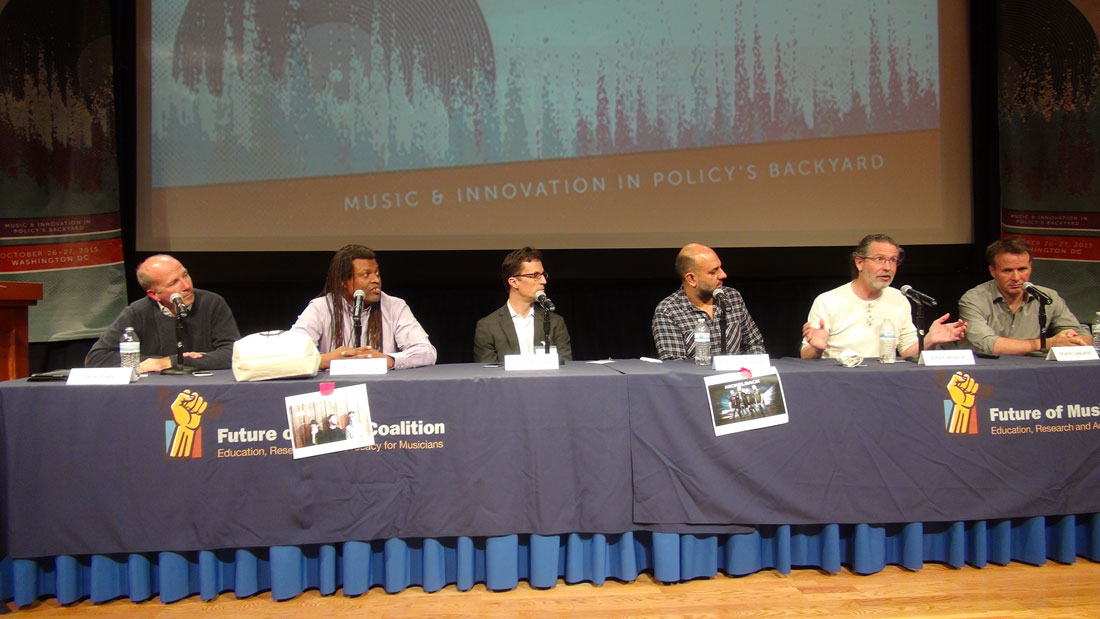Online music streaming services like Pandora or Spotify are a great way for artists to get their music out to a large audience and get paid. But the current pay distribution system disproportionately rewards musicians with higher click rates.
Panelists at the Future of Music Policy Summit’s “Cracking the Streaming Code” explained that the current pro-rata model incentivizes clicks, which favors big-name artists rather than those with a smaller but devoted fan base. The pro-rata system counts the total number of clicks in a given period, then divides the subscriber fees proportionately based on artists’ total clicks. If a subscriber pays $10 per month to use a streaming service and exclusively listens to a non-mainstream band, most of that money goes to other artists that get more clicks.
Former musician Sharky Laguana, founder of Bandago, the van rental company for musicians, said in an interview that by using the pro-rata model, streaming services are telling the artists “get us more clicks, we don’t care how many fans you have.”
Instead of the pro-rata model, Laguana proposed a “subscriber-share” model. In this model, the subscriber’s $10 and clicks do not get thrown into a larger pool of subscribers. Rather, every artist that individual subscriber clicks on gets a portion of the $10 fee.
“Both systems divide the money by a pool of clicks,” Laguana said. “The only difference is the pool of clicks in the current model, pro-rata, is the entire pool of subscribers. Whereas the pool of clicks in my model is one subscriber.”
However, this solution is not without its own problems. A big one for artists is whether streaming services can keep track of who listens to what. “The subscriber-share model may make doing audits of these companies more difficult,” said Melvin Gibbs, president of the Content Creators Coalition, an artist advocacy group striving for economic justice for artists in a digital domain.
Since audits are the way artists check to make sure they are getting paid appropriately, Gibbs said this model may make it harder to determine if we’re getting paid correctly, which is already very hard to determine.” No perfect solution has yet to be found, Gibbs said, but the most important thing for artists is that they have power in this situation.
“For things to change in a way that benefits artists, artists will need to get together. And the sooner we do that, the better things will be,” Gibbs said.
To see this post on reverb.com, click here

